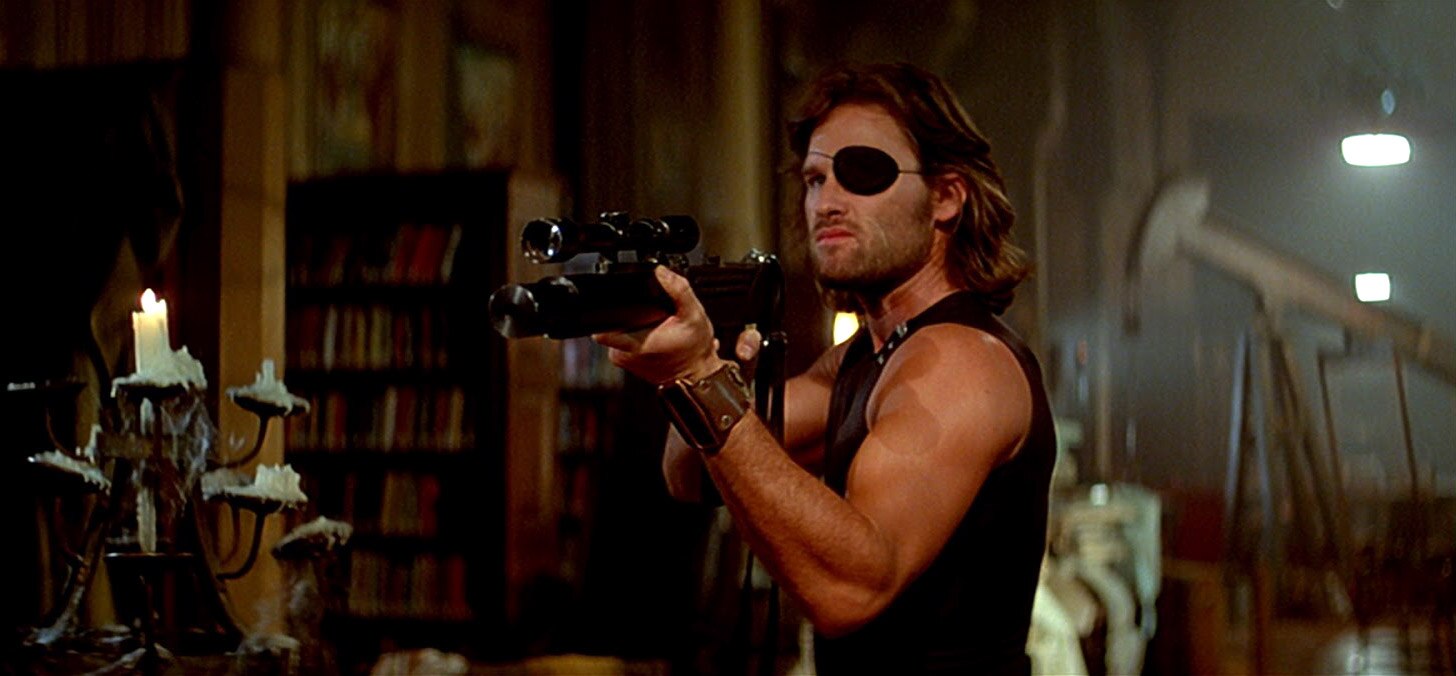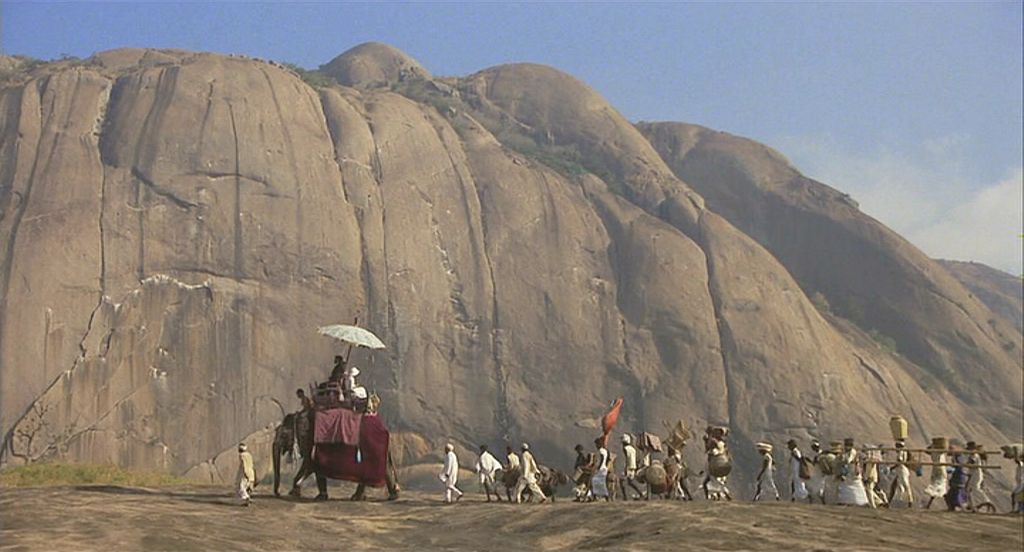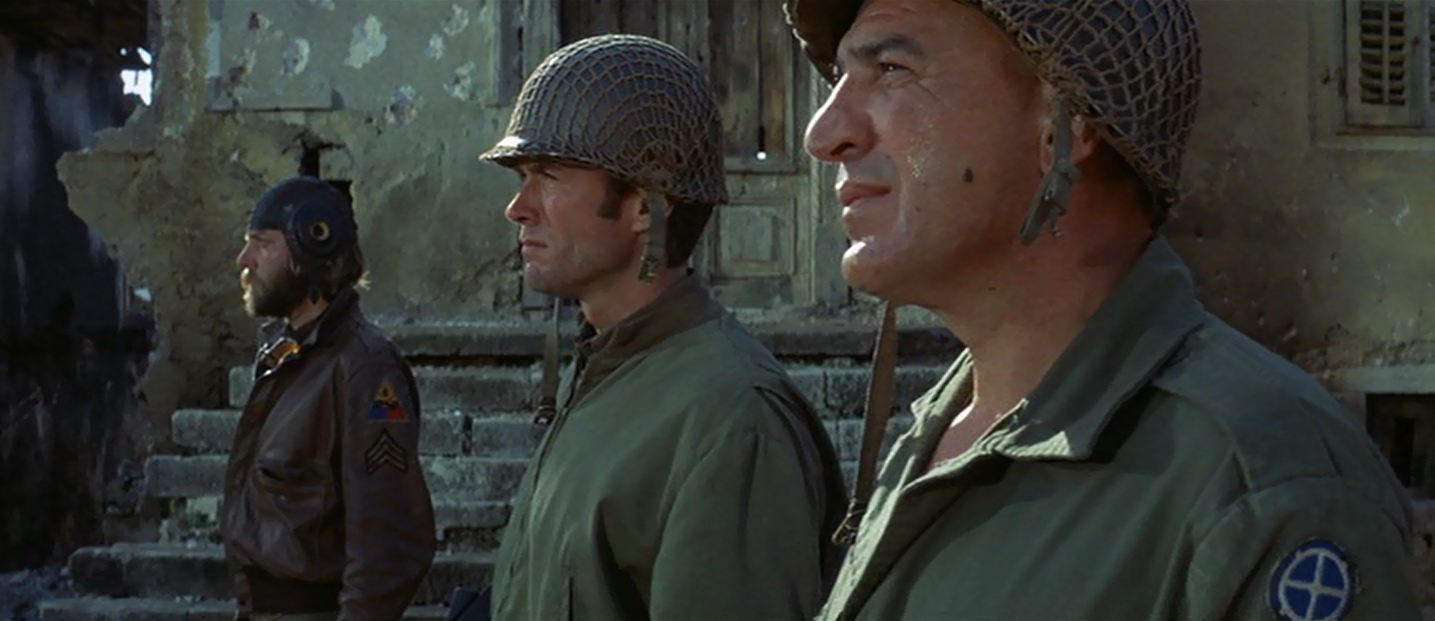#285 - Escape From New York
John Carpenter, 1981

In a world where New York City has been converted into a giant prison, an inbound convict is coerced into rescuing the President from inside.
It's interesting how John Carpenter, despite being a huge fan of Westerns, never made an actual Western. However, he did make films that heavily played into the Western mythos, most prominent among them being
Escape From New York. There are some sci-fi contrivances to guarantee the plot stays on track such as the loner protagonist being forced to do the rescue mission by getting microscopic bombs injected into his neck, but otherwise it's pretty much a Western filtered through an urban dystopia. Having veteran Western actors such as Lee Van Cleef and Ernest Borgnine thrown into the mix certainly adds to that, as does the fact that Kurt Russell's portrayal of the grizzled, myopic anti-hero that is Snake Plissken basically extends to him doing his best Clint Eastwood impression. When it's not borrowing from Westerns, it's borrowing a fair bit from horror films with its shadowy night-time photography, jump-scares, feral cannibals, and so forth.
Of course, this also falls into the category of favourites that I've watched so many times that I can pick apart the problems with the film as well. The passage of the 24-hour countdown, some lack of logic on the part of characters (why do the Crazies run past Snake without attacking him at first but only attack him after a short scene where he hides out with a fellow inmate?), and various other plot problems all become more obvious with each new viewing, but it's a testament to the film's vibe that I can still watch it without serious complaint. It's not exactly action-oriented save for the occasional chase or fight, instead trying to build up a slow-burn thriller packed out with a cast of colourful characters. As befitting a lot of cult classics, if I were to attempt to give it a truly objective rating then it'd probably be a popcorn box or two lower, but as it stands this is one of those films that I couldn't bring myself to rate lower even if I wanted to. The synthesised score is iconic (it still has one of my favourite film themes of all-time), plus Carpenter can still capture sharp urban wasteland imagery and special effects that still hold up reasonably well. It's got a charm that obviously won't endear it to everyone, but fortunately for me I am not everyone.







 The effort you've put in to this in terms of both watching and writing about all these films is amazing. I'll admit I've not read a great deal of your reviews so I don't know about the overall quality. But just based on the sheer quantity I fear for my Best Reviewer Mofie.
The effort you've put in to this in terms of both watching and writing about all these films is amazing. I'll admit I've not read a great deal of your reviews so I don't know about the overall quality. But just based on the sheer quantity I fear for my Best Reviewer Mofie. 

